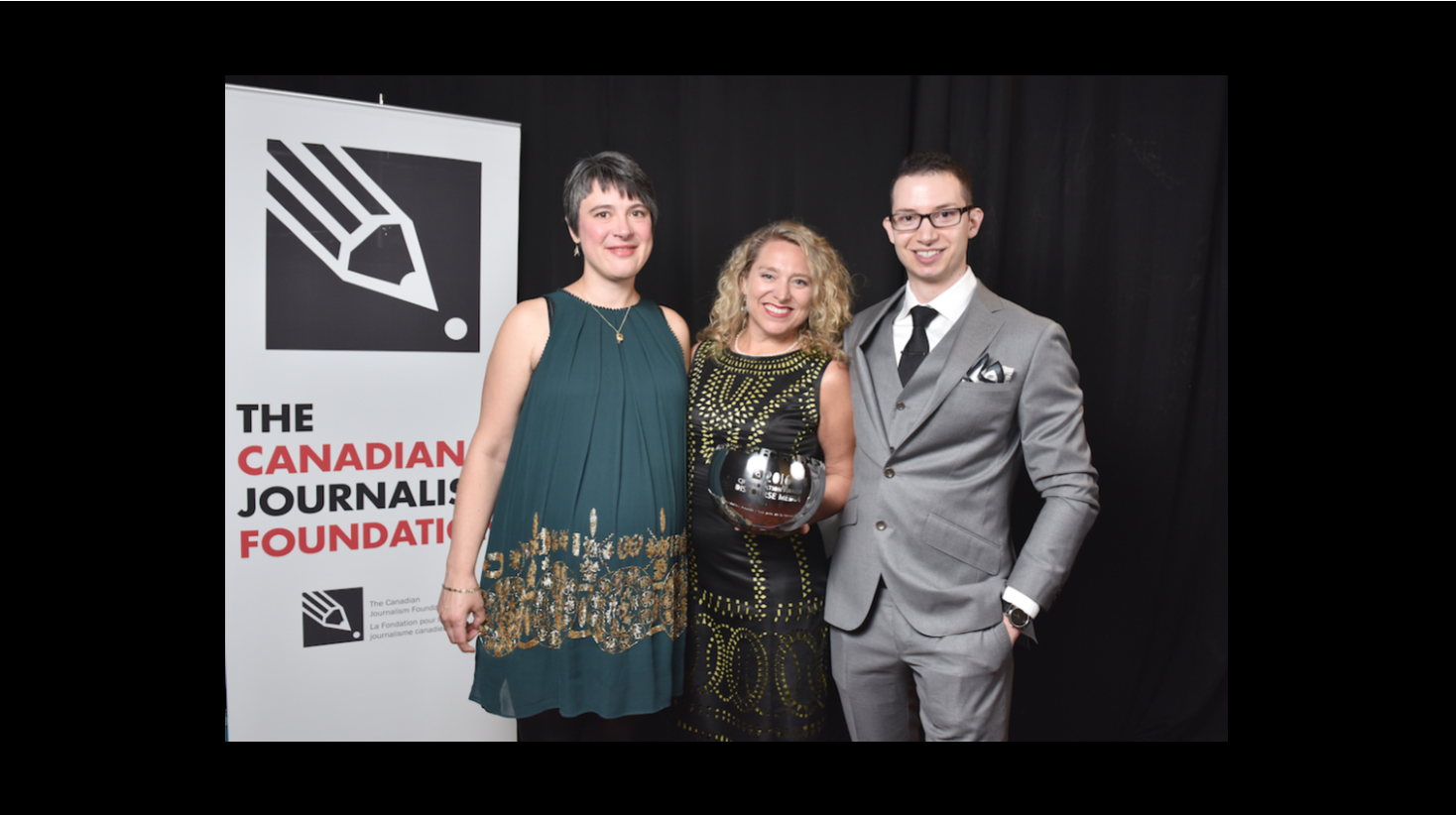Discourse Media wins 2016 CJF Innovation Award
Canadian Journalism Foundation recognizes innovative collaboration and data work on Moving Forward project

Discourse Media co-founder and CEO Erin Millar, director of business development Debbie Douez and academic collaborator George Poulos.
TORONTO, ONT. — Discourse Media is the winner of the 2016 Canadian Journalism Foundation (CJF) Innovation Award for our work on Moving Forward!
The win was announced at the CJF awards gala in Toronto, Ont. on June 16, 2016. Discourse Media’s co-founder and CEO Erin Millar and Debbie Douez, director of business development, were there to accept the award, alongside academic collaborator George Poulos, whose research at the University of British Columbia was used in Moving forward’s popular Cost of Commute Calculator.
Joshua Benton, director of the Nieman Journalism Lab at Harvard University, presented the award. The Nieman Journalism Lab recently published a piece on Discourse Media.
The CJF Innovation Award recognizes innovations by individual news organizations — from newsroom products to reporting techniques to audience engagement strategies — that advance the quality of journalism in a time of big change for the industry. Fellow finalists for the award were CBC North, for its online election forums which helped reach voters in isolated communities in the Northwest Territories, and The Globe and Mail, for new multimedia- and data-focused publishing tools.

Discourse Media produced Moving Forward in response to the over-politicized media landscape during Metro Vancouver’s 2015 transportation funding referendum. Journalists struggled to access adequate data and information, leaving voters under-informed. To address this problem we took a collaborative approach: we partnered with academics to access datasets which we used to produce issues- and evidence-based reporting. We shared our work with other local newsrooms, who either republished our reporting or produced original stories using our data.
“Moving Forward served as a proof of concept that collaborative models could enable us to do deep, ambitious journalism as a small team,” explained Millar. “We overcame conflict between the value systems of our academic and media partners and found that the journalism was better as a result of this productive tension. While we anticipated reluctance . . . we found a profound openness to new solutions.”
